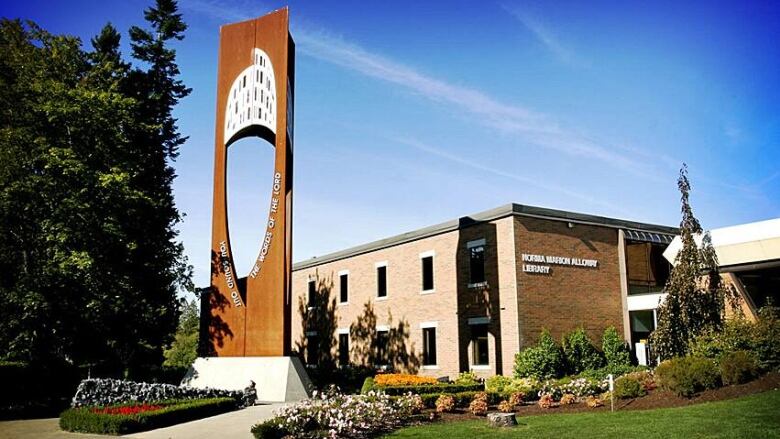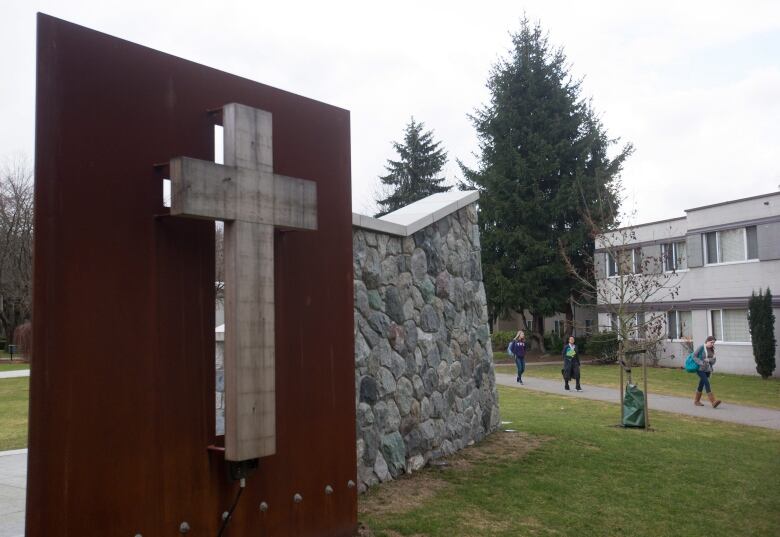Trinity Western University heads to Supreme Court of Canada over fate of proposed law school
The case with Trinity Western University and Law Society of B.C will be heard on Thursday

Representative for aChristian university in Langley, B.C., willappearbefore the Supreme Court of Canada later today in the final stage of a lengthy, controversial battle over a proposed law school.
In 2014, law societies in three provinces refused to accredit graduates from Trinity Western University's law program because of the university's community covenant.
The covenant requires students to agreeto abstain from, among other things, sexual relations outside of heterosexual marriage.
Earl Phillips, executive director of TWU's proposed law school, said the stipulation is equally applied to all students, regardless of sexual orientation.
The deeper issue is one of religious freedom, he told CBC host of The Early Edition Rick Cluff.
"We are a private institution and we operate in a way that is consistent with our Christian faith," Phillips said. "This is not just a restriction on Trinity Western University, this is not just on Evangelical Christians it's on the entire Christian church.It's on all faiths."

Lengthy battle
The law societies, however, argue that TWU's covenant discriminates against the LGBT community. The issue was taken to court in British Columbia, Nova Scotia and Ontario.
In both B.C. and Nova Scotia, the courts sided with TWU and ruled that the university has the right to act on its beliefs as long as there is no evidence of harm.
"This case demonstrates that a well-intentioned majority acting in the name of tolerance and liberalism, can, if unchecked, impose its views on the minority in a manner that is in itself intolerant and illiberal," stated the judgement from the Supreme Court of B.C.
The Court of Appeal for Ontario ruled against TWU, stating that the covenant "is deeply discriminatory to the LGBTQ community."
"One of the interesting things that will be faced by the Supreme Court of Canada this week is that there are these two very different decisions on the same issue and the same facts," said Phillips.
The Supreme Court will hear two appeals together over the contrasting judgements, one from TWU and one from the Law Society of B.C.
The Law Society of B.C. declined an interview with CBC.
"As the case is currently before the Supreme Court of Canada, we cannot comment beyond saying that this case involves two important Charter rights, which have to be balanced," the society said in a statement.
To hear more, click on the audio link below:
With files from The Early Edition












_(720p).jpg)


 OFFICIAL HD MUSIC VIDEO.jpg)
.jpg)



























































































